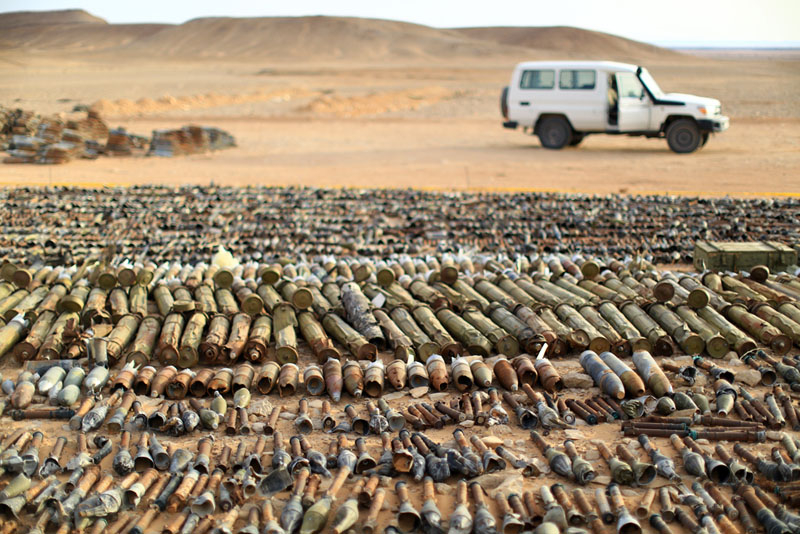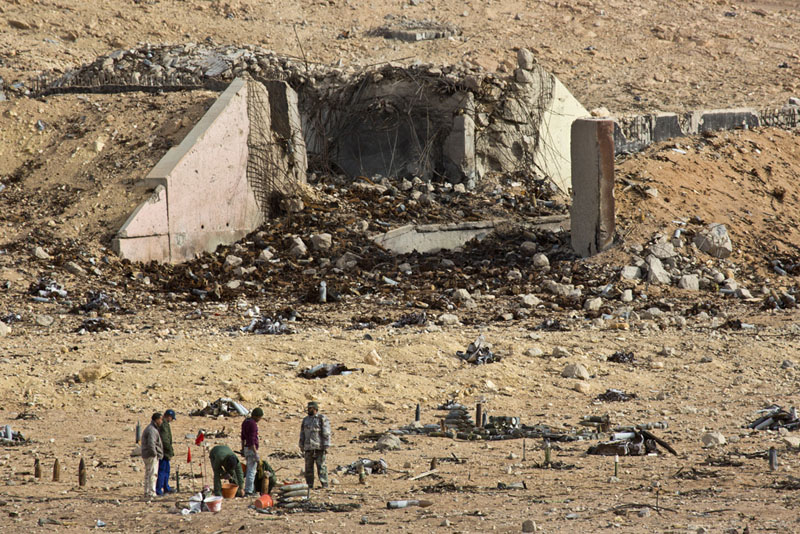
Tripoli, 15 March 2013:
A lack of safe storage facilities means that weapons and ammunition in the desert continue to pose a threat to Libya as well as other countries, the United Nations Support Mission in Libya (UNSMIL) has said.
An estimated 440 army bunkers used by the old regime to store explosives, ammunition, rockets and tanks were destroyed during the revolution. Areas around the bunkers were left littered with dangerous debris and, with the bunkers wrecked, there remain very few safe storage facilities for unsecured arms collected since the end of the conflict.
With each bunker costing upwards of $1 million, their destruction has left “a costly gap in the Libyan army’s ability to secure and safely store its considerable reserves of ammunition and rockets,” said UNSMIL.
In the central Jufra region, the desert is strewn with thousands of bombs, mortars, grenades, rockets, millions of rounds of heavy ammunition and other projectiles, said UNSMIL. Although local teams are systematically clearing the weapons, there are few places to store these safely.

Two storage facilities for active weapons are being built in Misrata, one funded by the office of the army General Chief of Staff and one by Switzerland. A $50,000 storage project in Tarhouna has also enabled $500 million-worth of Navy ammunition to be put into storage.
“Extending across Libya there is a huge amount of weapons and unexploded ammunition of all sorts that threatens public security and is at risk of falling into the wrong hands,” said Director of the UNSMIL’s Security Sector Advisory and Coordination Division, Michael Smith.
“Already weapons have seeped out and gone to other conflict zones,” said Smith.
UNSMIL said the UN is working with the Libyan armed forces, military councils and some local revolutionary brigades to monitor and advise on the safe storage and control of arms and ammunition, as well as the registering of weapons, and the clearance of explosive remnants of war.
However, it says that “time delays, funding shortfalls and the time-consuming process of building up trust with locals, have resulted, more than two years after the revolution, in large amounts of unguarded weapons that pose a proliferation threat.”
UNSMIL estimated that some 200,000 explosive remnants of war were cleared from homes and military facilities last year. A lot more, however, remain in loosely-guarded former regime depots. [/restrict]







